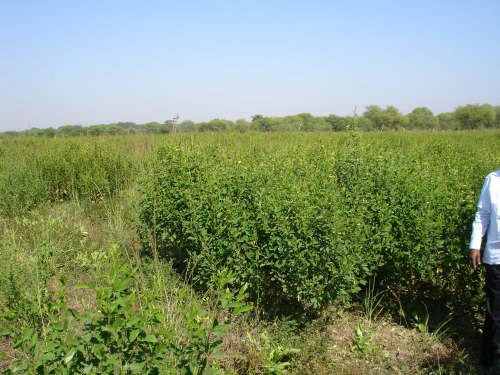 Chlorophytum borivilianum is a herb that is native to parts of India and belongs to the Liliaceae or lily family of plants. In India, the plant is sometimes called safed musli or musli. The plant is grown as a vegetable and is therefore of culinary interest nutritionally. However, evidence suggests that Chlorophytum borivilianum may have some medicinal effects. Extracts of Chlorophytum borivilianum have been shown to possess antioxidant and anti-stress effects in animals. The roots of Chlorophytum borivilianum are thought to possess phytochemicals that produce adaptogenic effects, and these may be able to modulate the stress reaction in animals to maintain normal physiological function. Extracts of the plant are thought to contain steroidal saponins and alkaloids, which may be the primary components that facilitate the adaptogenic properties of the roots. Other phytochemicals may provide significant antioxidant protection in the tissues of animals that consume the plant.
Chlorophytum borivilianum is a herb that is native to parts of India and belongs to the Liliaceae or lily family of plants. In India, the plant is sometimes called safed musli or musli. The plant is grown as a vegetable and is therefore of culinary interest nutritionally. However, evidence suggests that Chlorophytum borivilianum may have some medicinal effects. Extracts of Chlorophytum borivilianum have been shown to possess antioxidant and anti-stress effects in animals. The roots of Chlorophytum borivilianum are thought to possess phytochemicals that produce adaptogenic effects, and these may be able to modulate the stress reaction in animals to maintain normal physiological function. Extracts of the plant are thought to contain steroidal saponins and alkaloids, which may be the primary components that facilitate the adaptogenic properties of the roots. Other phytochemicals may provide significant antioxidant protection in the tissues of animals that consume the plant.

Chlorophytum borivilianum is an adaptogenic plant grown in India and used in traditional Indian medicine. Image by Pankaj Oudhia – Own work, CC BY-SA 3.0, https:// commons.wikimedia.org/ w/ index.php?curid=22363863.
Eat Well, Stay Healthy, Protect Yourself
RdB
